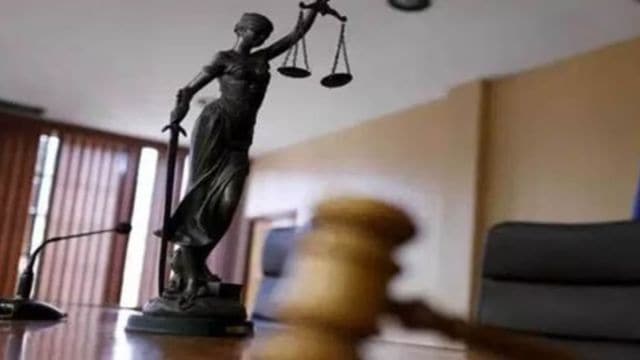Stuck for months, Delhi excise policy case finally moves forward
The CBI had argued in court that it had provided all the documents to the accused in the Delhi excise policy case and that the latter were stalling the trial by moving applications.
 The case arose out of a report submitted by Delhi Chief Secretary Naresh Kumar to Lieutenant Governor (LG) Vinai Kumar Saxena in July 2022, pointing to alleged procedural lapses in the formulation of the Delhi Excise Policy 2021-22. (File)
The case arose out of a report submitted by Delhi Chief Secretary Naresh Kumar to Lieutenant Governor (LG) Vinai Kumar Saxena in July 2022, pointing to alleged procedural lapses in the formulation of the Delhi Excise Policy 2021-22. (File)Over two-and-a-half years after it was registered, the corruption case linked to the alleged Delhi excise policy scam has finally moved forward.
On Thursday, after months of back and forth between the prosecution and the accused, Special Judge Dig Vinay Singh of the Rouse Avenue court finally resolved the issue related to scrutiny of documents – the case was stuck at this stage close to a year after the Central Bureau of Investigation (CBI) completed its investigation, with 25 adjournments in the last 10 months alone. The contention was linked to some arguments, a list of which was requested by the accused from the prosecution.
“Thus, the answer to the main contention is that the notices/communications sent to others by CBI, or the responses/documents received from others cannot be claimed to be protected…even if incorporated in the case diaries, and the investigating agency may either rely upon those documents or list those documents in the list of URDs (unrelied documents) and the accused persons are entitled to a copy of the list of URDs only, and not the copies of URDs themselves. They can, however, inspect the URDs,” he said in his order dated May 22.
Several accused had moved an application asking the agency to provide a complete list of ‘unrelied upon’ documents. Investigating agencies generally do not rely on all the documents that they have in their possession. Documents are bifurcated into two categories – ‘relied upon’ and ‘unrelied upon’. While the former is useful to the prosecution during investigation, the latter may be helpful to the accused for defending themselves.
The CBI had argued that it had provided all the ‘relied upon’ and ‘unrelied upon’ documents to the accused and that the latter were stalling the trial by moving applications. The agency had also urged the court to start arguments on the charge and stated that the accused persons could, meanwhile, inspect the documents.
“Arguments on charges will now proceed once the relied-upon digital evidence copy and the list of URDs are supplied to the accused individuals, as indicated above,” the judge added. It is only after the conclusion of arguments on charge that the trial in the case will begin.
“Let CBI incorporate such notices/communications/documents in the List of URDs, within 4 weeks, and supply a copy of the list to all the accused,” the court said.
A year ago, then Special Judge Kaveri Baweja had blamed the accused for causing a delay in the trial by filing “frivolous applications”. The court order had stated that 135 applications had been moved by 31 accused in the case. These applications were moved to get legible copies of the documents. She had directed the central probe agencies (both CBI and ED) to let the accused inspect the documents.
Earlier, the contention of the accused was that they were not getting legible copies of the documents. They had also complained about the digital documents being incompatible with their devices.
“It cannot be emphasised enough that ongoing inspections of URDs by the accused do not obstruct the charge arguments, as the accused can inspect those URDs but cannot rely on any at this stage. The accused persons are free to seek appropriate remedies during the trial qua URDs,” judge Singh noted.
Two cases have been registered in relation to the Delhi excise policy: one by the CBI and the other by the Enforcement Directorate (ED) on alleged money laundering. Almost all top Aam Aadmi Party (AAP) leaders in the national capital were once behind bars in relation to the excise policy case, including former chief minister Arvind Kejriwal, AAP Rajya Sabha MP Sanjay Singh, and former Delhi deputy chief minister Manish Sisodia.
The case arose out of a report submitted by Delhi Chief Secretary Naresh Kumar to Lieutenant Governor (LG) Vinai Kumar Saxena in July 2022, pointing to alleged procedural lapses in the formulation of the Delhi Excise Policy 2021-22. The report pointed out that “arbitrary and unilateral decisions” taken by Sisodia in his capacity as excise minister had resulted in “financial losses to the exchequer” estimated at more than Rs 580 crore. The policy came into force in November 2021, but was scrapped in July 2022.







